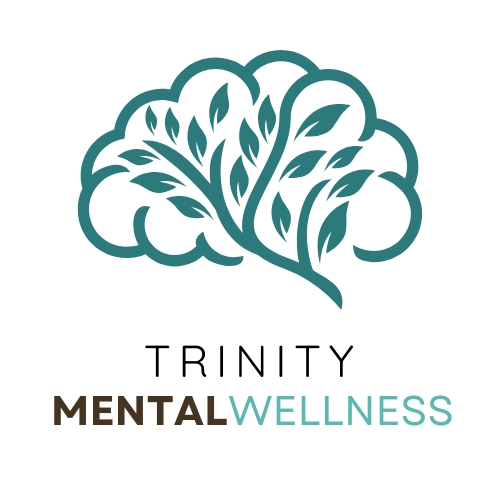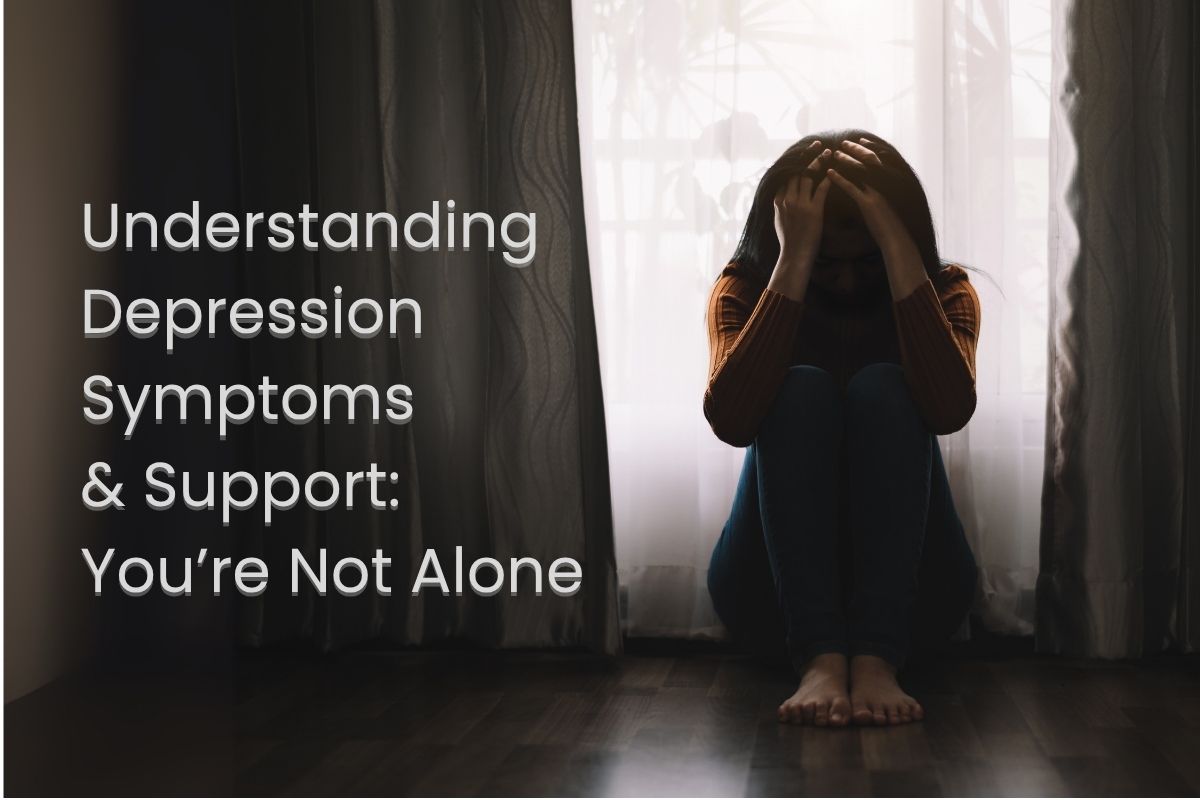Feeling sad now and then is part of life, but when that sadness sticks around, weighs you down, and makes it hard to enjoy things you once loved, it could be more than just a bad day. It could be depression. If you’re struggling with your mood or energy, its important to understand depression symptoms and support.. Let’s explore what depression really is, the signs to watch for, and how you can feel better with the right help—especially with therapy.

What Is Depression?
Depression is a common mental health condition that affects how you think and feel. It can make daily tasks harder and leave you feeling stuck in a fog of sadness or hopelessness. You might feel tired all the time, snap at people more easily, or just not care about the things you used to enjoy. Depression doesn’t mean you’re weak—it means you’re human and in need of support.
You might not even realize it’s depression at first. That’s because it doesn’t always show up as just sadness. For some, it’s more about feeling numb, exhausted, or disconnected from life. The good news? Depression is treatable, and you don’t have to face it alone.

Recognizing Depression Symptoms and Support Needs
Understanding the signs can help you or someone you love find help sooner. Depression symptoms and support go hand in hand—recognizing the signs is the first step.
Here are some common symptoms of depression:
- Feeling down, sad, or empty for most of the day
- Losing interest in things you used to enjoy
- Changes in appetite or weight
- Trouble sleeping or sleeping too much
- Low energy or fatigue that doesn’t go away
- Feeling worthless or guilty for no clear reason
- Difficulty concentrating or making decisions
- Thoughts of death or self-harm
You don’t need to have all of these signs to be struggling. If even a few sound familiar and they’re lasting more than a couple of weeks, it’s a good idea to reach out. Talking to a mental health professional can help you understand what’s going on and what to do next.

How Therapy Helps You Cope with Depression
Therapy is one of the most effective ways to manage depression symptoms and support healing. You don’t have to figure it all out on your own. A therapist creates a safe space where you can share your thoughts, fears, and feelings without judgment.
One major benefit of therapy is learning to understand yourself better. You start to notice patterns in your thinking that may be dragging you down. Your therapist helps you challenge those thoughts and replace them with ones that are more balanced and realistic.
Cognitive Behavioral Therapy (CBT), for example, is a popular method that teaches practical skills to manage mood swings and negative thinking. Other types of therapy, like talk therapy or mindfulness-based therapy, can also help you reduce stress and feel more in control again.
Therapy also gives you tools to handle daily challenges. When you’re in a low place, even small things can feel impossible. But over time, you’ll build a toolbox of coping skills—like breathing exercises, goal setting, or setting healthy boundaries—that can make life feel more manageable.

Ways to Cope Alongside Therapy
Therapy is powerful, but it’s not the only support out there. Pairing it with small lifestyle changes can boost your progress and help you feel better faster.
Try to:
- Move your body—gentle exercise like walking can lift your mood
- Stay connected—talking with friends or loved ones can reduce isolation
- Sleep regularly—getting enough rest can ease mood swings
- Eat balanced meals—your brain needs fuel to feel its best
- Be kind to yourself—healing takes time, and that’s perfectly okay
And remember, coping doesn’t mean doing everything perfectly. It just means you’re trying—and that’s enough.

Conclusion: You Deserve Support
Living with depression isn’t easy, but you’re not broken and you’re definitely not alone. Whether your symptoms are new or have been lingering for a while, help is available and healing is possible. Therapy offers a steady, supportive path forward and can truly change your life.
Recognizing depression symptoms and support needs is the first brave step. From there, each small action you take builds momentum toward feeling like yourself again. You are worth the effort, the time, and the care it takes to heal. Don’t hesitate to reach out. Better days are ahead—and therapy can help you get there.
Learn about Major Depression Disorder.
Here is a suggestion for helping with Depression: Boost Mental Health with Journaling

